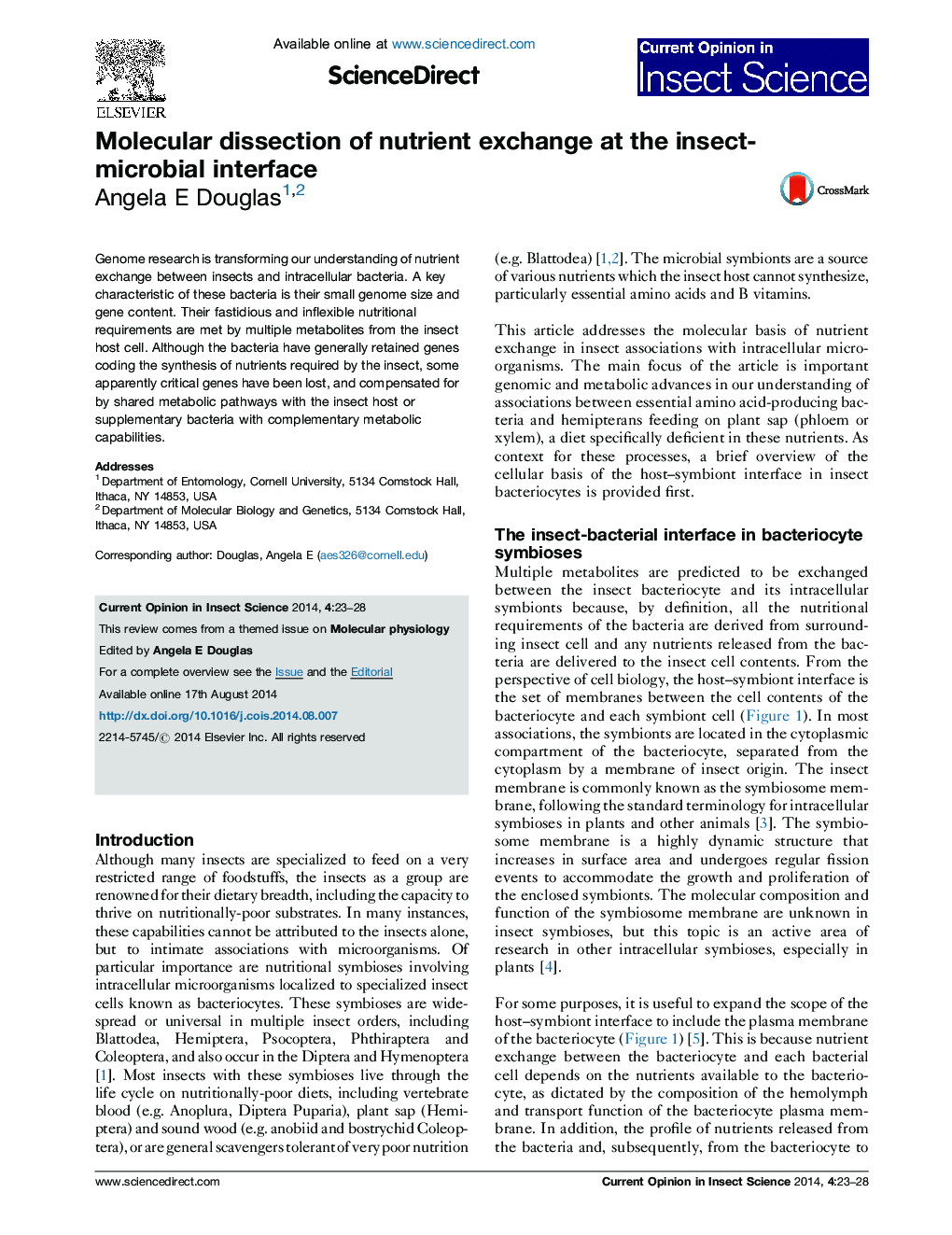| Article ID | Journal | Published Year | Pages | File Type |
|---|---|---|---|---|
| 4508284 | Current Opinion in Insect Science | 2014 | 6 Pages |
•The host/symbiont interface supports the exchange of multiple metabolites.•Metabolic and transport functions may regulate nutrient exchange.•Genomic decay has resulted in incomplete metabolic pathways of some symbionts.•Shared host/symbiont metabolic pathways can compensate for bacterial genomic decay.
Genome research is transforming our understanding of nutrient exchange between insects and intracellular bacteria. A key characteristic of these bacteria is their small genome size and gene content. Their fastidious and inflexible nutritional requirements are met by multiple metabolites from the insect host cell. Although the bacteria have generally retained genes coding the synthesis of nutrients required by the insect, some apparently critical genes have been lost, and compensated for by shared metabolic pathways with the insect host or supplementary bacteria with complementary metabolic capabilities.
Graphical abstractFigure optionsDownload full-size imageDownload as PowerPoint slide
